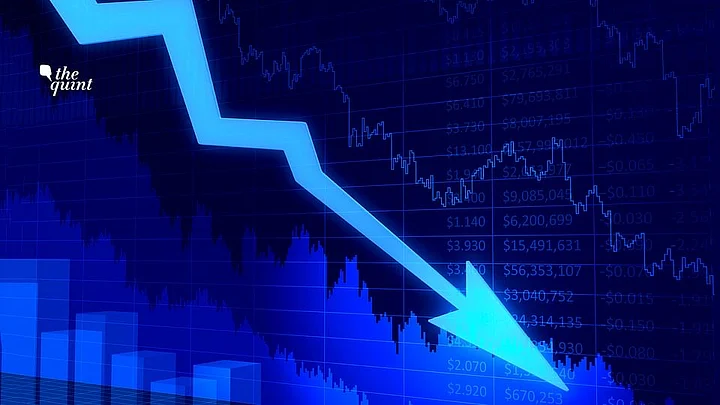In the history of the Indian stock market, there have been reports of the market crashing several times. However, the 2008 financial crash has been particularly etched in history.
A big decline in the market has come to the fore in 2022. While there was talk last year of the Sensex crossing the 60,000 mark, the Sensex is trading around 52,000 nowadays.
The 2008 Financial Crisis
On 21 January, 2008, the Sensex fell by 1408 points to close at 17,605. Lakhs of rupees of investors' money were lost. Even the BSE stopped trading till 2.30 pm due to a technical fault.
Following the crash, several media publications headlined news regarding the event as "Black Monday".
Global markets were crashing at this time as well. In the United States (US), there was a possibility of a recession. Amid interest rates being slashed, there was also immense volatility in commodity markets.
Also, the news of American investment banking firm Lehman Brothers going bankrupt had hurt the economic situation further and sent markets into a downward spiral.
By the end of 2008, the Sensex was trading at 9,176, falling from 20,465. The Sensex finally crossed the 20,000 mark in September 2010.
How Does the 2022 Market Crash Compare to 2008?
Speaking to The Quint, Securities and Exchange Board of India (SEBI)-registered financial advisor Jitendra Solanki said that the crash in 2008 was one of the worst global economic crises in the world, which was caused by increased lending to low-income buyers and large risks taken by global financial institutions.
"This incident devastated some of the biggest financial institutions and international banks around the world. Since equity markets are not isolated from them, the crisis affected markets across the world as well," he said.
He also said that in 2008, there was a sharp decline in equity portfolio. Investors were facing huge losses with a fall of around 25-30 percent within a few days, causing immense panic. However, those who remained in the market during this period reaped benefits later, as the market entered into a state of recovery a year later.
However, Solanki said that he does not view the crashes of 2008 and 2022 in the same light. The financial crisis in 2008 had a major impact on the market. At this moment, however, there is no such major impact, he said, cautioning, however, that such happenings could not be predicted.
‘Situation Will Improve If Govt Controls Inflation’
On the other hand, Ashwin D'Silva, a long-time stock market investor, said that there was a 50 percent drop in the portfolio of investors in 2008. Following this, investors took their money out of the equity market and put it in mutual funds, which offered reduced risks.
"If the government controls inflation, then the market will definitely improve," D'Silva told The Quint.
Meanwhile, chartered accountant Vishank Chaudhary said that it took three years after the 2008 crisis for the market to operate properly. Gradually, several countries changed their banking policies (with regard to providing loans) and changed their financial positions, due to which the economy saw an uptick.
"When there was a financial crisis in 2008, it was very difficult for the market to grow. But as soon as financial policies were changed the world over, things started to get better," he told The Quint.
The current crisis, Chaudhury said, was caused by the COVID-19 pandemic, adding that the market will start functioning normally when the problems created by the pandemic abate completely. "It is only a short-term crash," he claims.
(At The Quint, we question everything. Play an active role in shaping our journalism by becoming a member today.)
